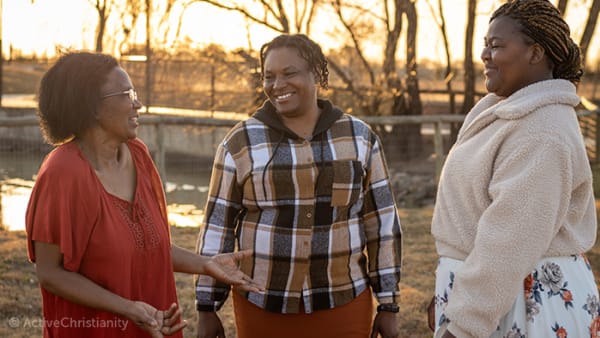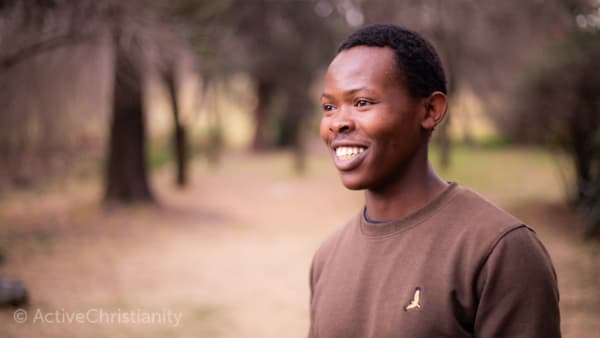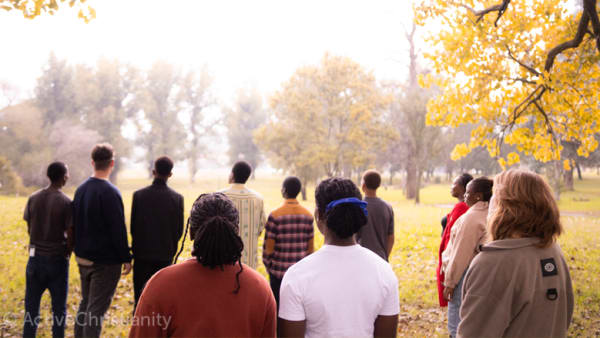Salvation – a “rescue operation”
It is very good to think about what the word “salvation” means. It’s the same as “rescue”. Salvation in Jesus Christ is a “rescue operation”. As human beings, we find ourselves in a hopeless situation because of sin. We need not just a little help – no, we must be rescued from the control of sin and our self-will. This is exactly what Jesus wants to do, and nobody else is able to do it.
Jesus has the power to forgive our sins and to help us when we are tempted so that we can overcome. And He will change us to be like Him (Romans 8:29). The gospel does not give us hope for becoming a bit better, but for total change.
The fruits of the Spirit – or my own righteousness?
We have to show the fruits of the Spirit like joy, peace, goodness, love, patience, etc, but these should not be confused with good human qualities. There is a big difference between us as people. Some people are born with great strength of character, while others are weak and give up easily. Some are very selfish while others have a kind and sacrificing nature. But God is not unfair. Those that are born with a “good” human personality don’t have a greater value in His eyes than others. No, everyone needs salvation.
Our good human qualities are very limited. For example, we may show some patience or some kindness, but if things become too difficult, our patience and kindness will soon end.
There is a huge difference between good human qualities and the fruits of the Spirit. We can have good morals, be kind and good and live a good life, but if we are truthful and honest, we quickly discover that our best deeds are not pure. For example, we are maybe so helpful only because we want people to like us, and while we are doing something good for others, we maybe judge them a little, or we have hidden demands on them, etc. We can do a lot of “good things” by ourselves, but people won’t see the eternal kingdom of God or God’s glory in our lives.
The good we do by ourselves can be summed up under the term “my own righteousness”. But this has nothing to do with “the righteousness that comes from God and is based on faith.” Philippians 3:9 (GNT). Like Paul, we must admit that “I know that good does not live in me--that is, in my human nature.” Romans 7:18 (GNT). Here everyone is equal.
A life in Jesus’ footsteps
I must come to the understanding that I by myself cannot live in such a way that I really reveal the glory of God to the people around me. By myself I cannot live in such a way that I am truly unselfish, always loving, patient etc. I must come to the point where I understand that I must live in faith with help from Jesus, who will save me from my selfishness, lack of love, impatience etc. Then I go to God and pray with all my heart for mercy and grace to help me. (Hebrews 4:16.)
God sees my need and He hears my prayer, and gives me a word from Him when I come into temptations and trials. The answer to prayer does not mean that I’m no longer tempted or tried – no, it means that I learn to be obedient to His word and that He helps me to say No when I am tempted, until the sin dies. (Hebrews 5:7-8.) As a result, I will little by little get more of the fruits of the Spirit.
There are great and glorious depths in this gospel, and we will never be finished with exploring the possibilities that the message of the cross gives. We change and this change comes from God. A pleasing heavenly sweet smell of Jesus Christ appears in my life. (2 Corinthians 2:15-16.) That is something completely different from just having good morals and good human qualities. It is a life in the footsteps of Jesus, the life of a disciple who is always overcoming.
May God give us grace that we can always say No when we are tempted, then we will experience that His life is becoming more and more visible in us.




